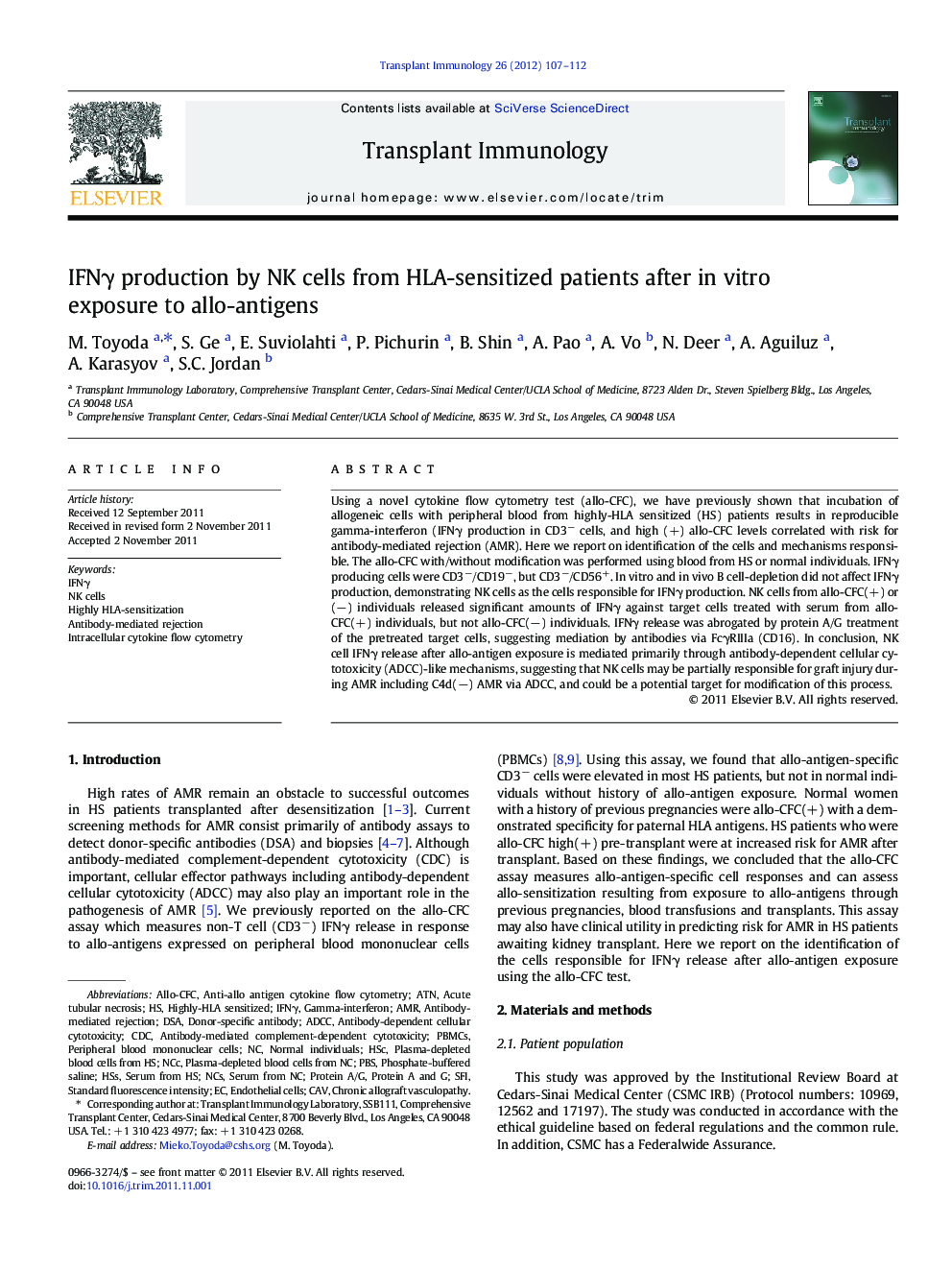| Article ID | Journal | Published Year | Pages | File Type |
|---|---|---|---|---|
| 3392171 | Transplant Immunology | 2012 | 6 Pages |
Using a novel cytokine flow cytometry test (allo-CFC), we have previously shown that incubation of allogeneic cells with peripheral blood from highly-HLA sensitized (HS) patients results in reproducible gamma-interferon (IFNγ production in CD3− cells, and high (+) allo-CFC levels correlated with risk for antibody-mediated rejection (AMR). Here we report on identification of the cells and mechanisms responsible. The allo-CFC with/without modification was performed using blood from HS or normal individuals. IFNγ producing cells were CD3−/CD19−, but CD3−/CD56+. In vitro and in vivo B cell-depletion did not affect IFNγ production, demonstrating NK cells as the cells responsible for IFNγ production. NK cells from allo-CFC(+) or (−) individuals released significant amounts of IFNγ against target cells treated with serum from allo-CFC(+) individuals, but not allo-CFC(−) individuals. IFNγ release was abrogated by protein A/G treatment of the pretreated target cells, suggesting mediation by antibodies via FcγRIIIa (CD16). In conclusion, NK cell IFNγ release after allo-antigen exposure is mediated primarily through antibody-dependent cellular cytotoxicity (ADCC)-like mechanisms, suggesting that NK cells may be partially responsible for graft injury during AMR including C4d(−) AMR via ADCC, and could be a potential target for modification of this process.
► IFNγ producing CD3− cells in the allo-CFC assay were identified as NK cells. ► NK cell was activated by an allo-antibody-mediated ADCC-like mechanism via FcγRIIIa. ► NK cells may also be responsible for graft injuries including C4d(−) AMR via ADCC.
